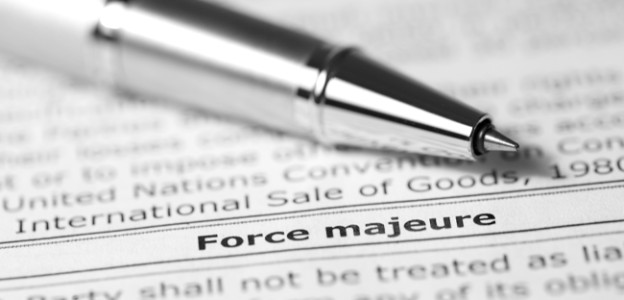08 April 2020
Commercial Contracts In The Covid-19 Environment

How will my contracts be impacted and what can I do?
The effects of the Government’s response to the Covid-19 crisis are wide-ranging and you may have concerns regarding how contracts that are crucial to the operation of your business are affected.
You may be a party to a number of different types of contracts that are important to the day-to-day operation of your business, including for example, supply contracts; distribution contracts; equipment leases; or your business’ standard terms of trade.
What are your obligations?
The first step that you need to take before entering discussions with the other party to any contract, is to determine your key commercial rights and obligations under that contract. You may need to consider the following:
1. Your payment obligations.
2. Time obligations in regards to delivery or performance under the contract.
3. Minimum order requirements under the contract.
4. Supply obligations, for example, supplying a certain amount of product.
The purpose of this first step is for you to determine the particular aspects of the contract that are likely to be breached during the period of the lockdown.
Rights of the Parties
The second step is to review the contract in its entirety. You need to identify what each party’s rights are in the case of the other party’s default.
1. What are each party’s rights of termination of the contract?
2. Is there a right to suspend performance of the contract?
3. Is default interest chargeable for late payments?
Keep an eye out for provisions that refer to “material adverse change”, limitation or exclusion clauses, or clauses that consider changes in law.
Two legal concepts have received significant exposure recently, being “force majeure” and the “doctrine of frustration”.
Force Majeure
Some contracts contain a Force Majeure clause. Force Majeure means a circumstance that is unforeseeable which prevents someone from fulfilling their obligations under a contract. Not all contracts contain Force Majeure clauses. The important point to start with is if your contract does not include a force majeure provision, then you cannot rely on it. That is, you will not be able to end or delay your obligations under the contract due to the Covid-19 pandemic, nor will a party who owes you obligations under a contract be able to rely on Force Majeure if it is not contained in the contract.
If your contract does contain a Force Majeure clause, you need to ensure that it covers a pandemic situation. The Government emergency situation may also assist you in respect of Force Majeure if that is contained in the provision.
Doctrine of Frustration
Frustration occurs where an unforeseeable event causes performance of a contractual obligation impossible, or radically different to what was initially contemplated by the parties, without this being the fault of either party. If a contract is frustrated, then the contract is cancelled.
Some examples of when a contract may be frustrated include:
1. Where the subject matter of a contract no longer exists.
2. Death or incapacity.
3. The purpose of the contract becomes impossible.
4. Performance of the contract becomes illegal due to law changes.
5. Long delay or obstruction (however only if the delay is so long or the obstruction is so extreme that continued performance would be completely different to what was initially contemplated.)
There is a very high threshold in order to claim that a contract is frustrated. There must have been a real change in the nature of the obligation. The fact that performance under a contract may have become more expensive or onerous to perform, or in the context of Covid-19 caused a delay in performance due to the lock down period, will not normally mean that a contract is frustrated.
Practical Steps
At this early stage of the Government lockdown, our experience is that parties are dealing with each other pragmatically. However, what can you do if the other party to a particular contract takes a hard-line approach (which may become more probable the longer the lockdown lasts)? Here are a few tips:
1. If you need to serve a notice under the contract (including notice of the other party’s default, or notice claiming force majeure), make sure your notice complies with any requirements of the contract for the proper service of notices.
2. Avoid inadvertently waiving any rights or affirming your obligations under the contract. If you receive a default notice, speak to your lawyer before responding as your communications at this stage may have consequences if the dispute is unable to be resolved in negotiations.
3. Ensure that you preserve your rights under the contract and that any offer to resolve a dispute is made without prejudice to those rights.
4. If you suffer loss directly related to the other party’s non-performance of their obligations under a contract, you must take steps to mitigate your loss. Make sure that you document the steps that you have taken and retain complete records so that if there is a dispute, you have evidence of your actions.
It is highly unlikely that any contract adequately covers off all circumstances that you might encounter throughout the term of the contract, the Covid-19 crisis being a likely example of this. We encourage parties to contracts during this time to negotiate with each other pragmatically and in good faith. Coming out of the crisis, the market will remember the approach taken by parties during this time, and you will want to consider your commercial and reputational risks in the approach you take to any contractual negotiations.
If you require any assistance with your contracts, please contact us.
Disclaimer
The above information is of a general nature only. The information in this article does in no way constitute legal advice and all readers should contact a law firm for advice relating to your specific circumstances.








